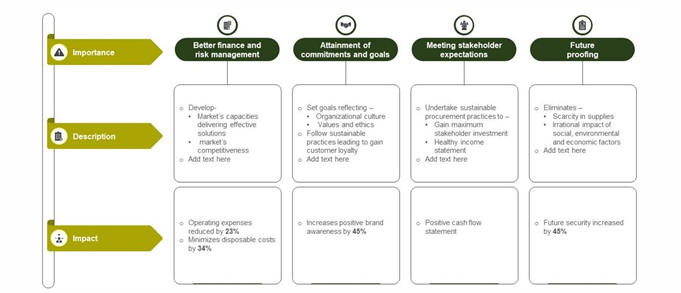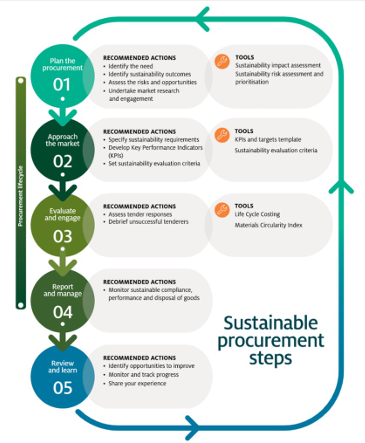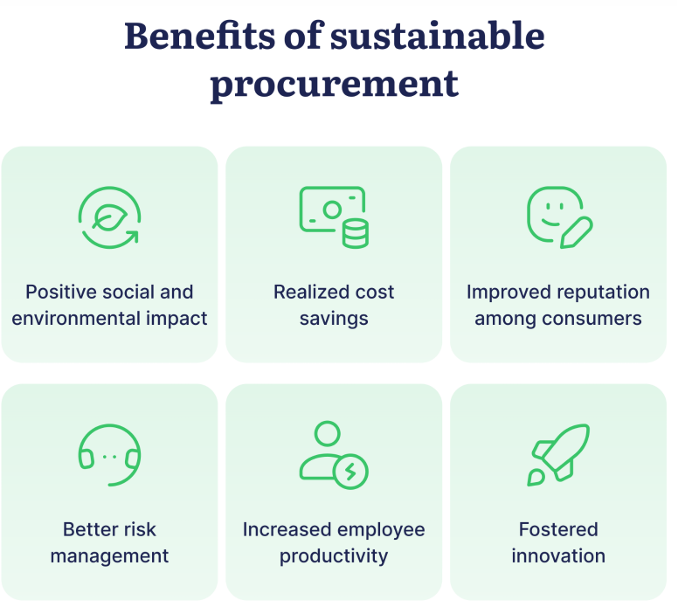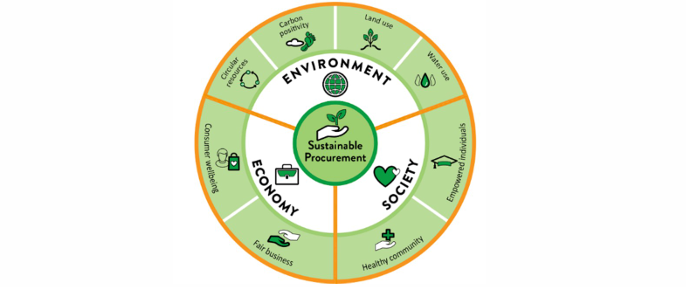(Driving Responsible and Impactful Procurement)
7.1 Overview:
In the realm of procurement and supply chain management, the Sense of Sustainability and Ethics is integral to ensuring that procurement activities are conducted in a manner that respects environmental stewardship, social responsibility, and ethical practices. This sense involves understanding the broader impact of procurement decisions, embracing sustainable practices, and upholding ethical standards to create long-term value for the organization and society.
7.2 The Importance of Sustainability and Ethics
Sustainability and ethics are crucial considerations in modern procurement and supply chain management. Organizations are increasingly held accountable for their environmental impact, social responsibility, and ethical behaviour. A strong Sense of Sustainability and Ethics ensures that procurement activities align with these values, helping organizations achieve their corporate social responsibility (CSR) goals, enhance their reputation, and mitigate risks associated with unsustainable or unethical practices.

7.3 Developing a Strong Sense of Sustainability and Ethics
1. Integrate Sustainability into Procurement Strategy: Incorporate sustainability criteria into procurement strategies and decision-making processes. This includes evaluating suppliers based on their environmental practices, energy efficiency, waste management, and overall impact on sustainability. Developing a sustainable procurement strategy helps in sourcing responsibly and reducing the organization’s environmental footprint.
2. Adopt Ethical Sourcing Practices: Ensure that procurement practices adhere to ethical standards, including fair labor practices, anti-corruption measures, and human rights considerations. Establish and enforce a code of conduct for suppliers that outlines expectations regarding ethical behavior, and conduct regular audits to ensure compliance.
3. Promote Transparency and Accountability: Foster transparency in procurement processes by openly sharing information about sourcing decisions, supplier practices, and sustainability efforts. Encourage accountability by setting clear goals and metrics for sustainability and ethics, and regularly report progress to stakeholders.
4. Support Sustainable Supplier Practices: Engage with suppliers to promote and support sustainable practices. Collaborate on initiatives that enhance environmental performance, such as reducing carbon emissions, minimizing waste, and using sustainable materials. Building strong relationships with suppliers that prioritize sustainability reinforces your organization’s commitment to responsible sourcing.
5. Educate and Train Teams: Provide training and resources to procurement teams on sustainability and ethical practices. Ensure that team members are aware of the organization’s policies and expectations regarding sustainability and ethics, and equip them with the knowledge to make informed decisions.

6. Measure and Evaluate Impact: Regularly assess the impact of procurement activities on sustainability and ethics. Use key performance indicators (KPIs) and metrics to measure progress towards sustainability goals, track compliance with ethical standards, and identify areas for improvement.
7. Engage Stakeholders and Communicate Effectively: Engage with stakeholders, including customers, investors, and community members, to understand their expectations and concerns regarding sustainability and ethics. Communicate your organization’s commitment to these values clearly and consistently, and seek feedback to enhance practices.
7.4 The Impact of Mastering the Sense of Sustainability and Ethics
Mastering the Sense of Sustainability and Ethics elevates procurement and supply chain management from mere transactional functions to drivers of responsible and impactful business practices. By integrating sustainability and ethics into procurement decisions, organizations can enhance their reputation, build stronger relationships with stakeholders, and contribute positively to society and the environment
A well-developed Sense of Sustainability and Ethics ensures that procurement activities not only meet operational needs but also align with broader values and goals. It helps in mitigating risks associated with unsustainable or unethical practices, fosters a culture of responsibility, and supports long-term organizational success.
In the pursuit of procurement and supply chain excellence, the Sense of Sustainability and Ethics is your guide to conducting business in a way that respects and benefits both people and the planet. Embrace this sense, integrate it into your strategies and practices, and let it drive you towards creating a more sustainable and ethical supply chain.



